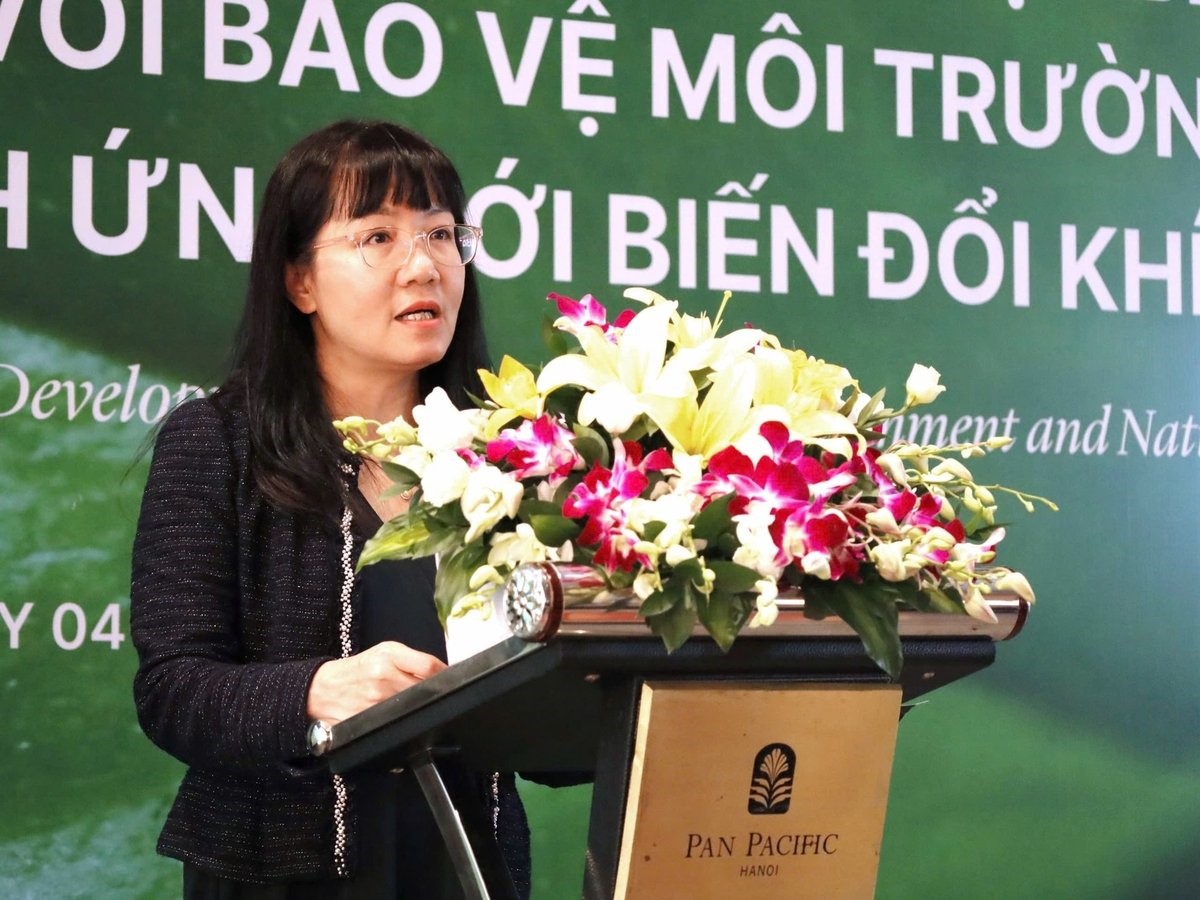A Hanoi forum spotlighted joint Vietnam - Australia initiatives in circular economy and sustainable agriculture, from marine waste collection to high-tech recycling and climate-resilient farming.
On November 4, the University of Sydney, in collaboration with the Institute of Strategy and Policy on Agriculture and Environment, organized the forum "Developing Sustainable Agriculture Linked to Environmental Protection and Climate Change Adaptation" in Hanoi.
At this forum, several sustainable agricultural models integrated with environmental protection were introduced.
 Deputy Minister of Agriculture and Environment Tran Thanh Nam stated that cooperation with Australia is strategically significant, opening up major opportunities in research and the application of advanced technology. Photo: Hoang Hien.
Deputy Minister of Agriculture and Environment Tran Thanh Nam stated that cooperation with Australia is strategically significant, opening up major opportunities in research and the application of advanced technology. Photo: Hoang Hien.Hoang Thi Dieu Linh from the United Nations Development Programme (UNDP) reported that the "Fishing Boat Brings Trash Ashore" model is currently being implemented in Binh Dinh Province, featuring solutions to collect plastic waste from the sea through fishermen's commitments and a waste exchange system that provides rewards. Since the beginning of 2024, the program has collected approximately three tons of waste and is expanding to other fishing ports. UNDP is also deploying a secondary raw material exchange platform model and a responsible procurement framework for plastic scrap, aiming to build a fair and efficient plastic supply chain.
Professor Ali Abbas from the University of Sydney (Australia) shared Australia's experience in developing a circular economy, emphasizing the role of product design throughout the entire life cycle, avoiding single-use products, and promoting chemical recycling to convert hard-to-recycle plastic into new materials. This aligns with Australia's goal of achieving 100% recyclable or reusable packaging and eliminating single-use plastics by 2025.
 Professor Nguyen Thu Anh, Director of the University of Sydney Institute, suggested that the circular economy goes beyond merely reducing waste; it entails redesigning the entire production-consumption system. Photo: Hoang Hien.
Professor Nguyen Thu Anh, Director of the University of Sydney Institute, suggested that the circular economy goes beyond merely reducing waste; it entails redesigning the entire production-consumption system. Photo: Hoang Hien.Vietnamese scientists at the forum also introduced new research directions on climate change adaptation in the Mekong Delta, developing a circular bioeconomy, producing silica from rice husk ash, and utilizing agricultural byproducts in An Giang Province.
Speaking at the forum, Deputy Minister of Agriculture and Environment Tran Thanh Nam stressed that in the context of climate change, resource depletion, and economic growth pressure, sustainable development and the circular economy are the essential paths forward for Vietnam and other nations. Vietnam is currently implementing several important national strategies, such as the Circular Economy Strategy, the National Strategy on Climate Change, and the roadmap for Net-Zero emissions by 2050. Within this context, cooperation with Australia—a country with vast experience in high-tech agriculture, renewable energy, and resource management—holds strategic significance, opening major opportunities for advanced research and technology application.
Professor Nguyen Thu Anh, Director of the University of Sydney Institute, posited that the circular economy goes beyond merely reducing waste; it entails redesigning the entire production-consumption system toward an integrated model that combines waste management, energy transition, and sustainable agriculture. The two nations can share experiences in developing eco-industrial parks, recycling infrastructure, and applying AI and IoT technology to optimize supply chains, reduce emissions, and simultaneously enhance the capacity of Vietnam's young generation.